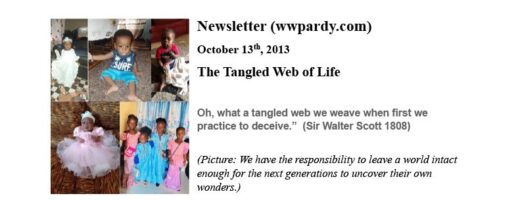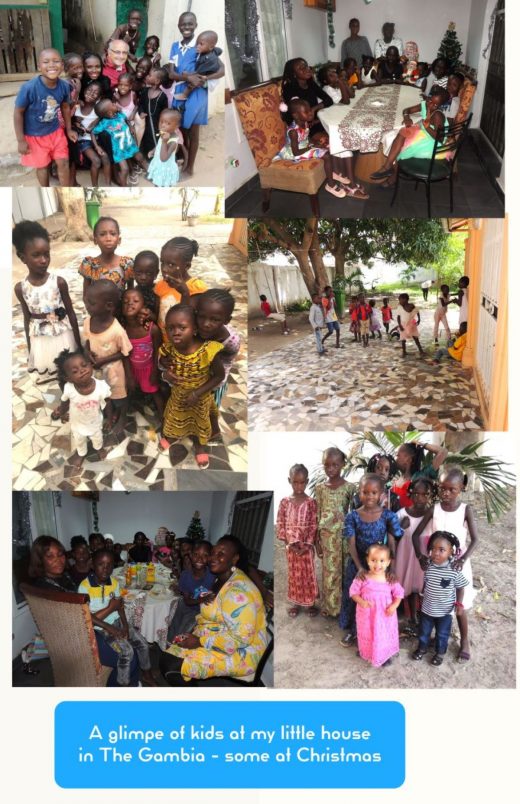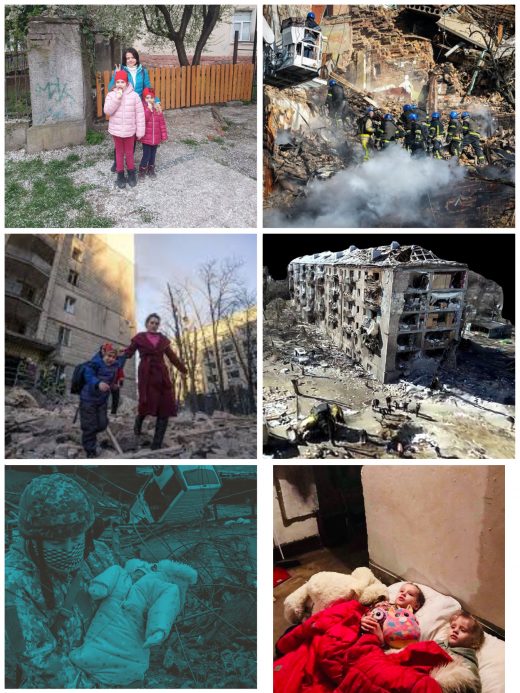Present societal change is causing both reflection and reorganization of the fundamentals of our society, institutions, and approach to government. Theses shifts have been evident for the past number of decades but now the limits of sustainability of our present social and economic structures are being reached.
The collapse of the Soviet system, which it could be argued, was the world’s most structured society, is causing the world map to be redrawn. The Western world is rapidly approaching the same melt-down point in its society. The technology and communications revolution, a major factor is this collapse, is causing artificial geography boundaries to disappear and allowing cross-cultural exchange unlike any other period of history.
There is one human element which is evident throughout these chaotic times: The quest for identity, achievement, and the sense of accomplishment and fulfillment. This is ultimately the real driving force of all humans no matter what their status or level of affluence.
This search is often deflected. The rush to consumerism in the Western World and the quest for retrenchment of ancient geographic borders and “ethnic cleansing” in the former Soviet republics are but two examples. These deflections are caused by fear of confronting real issues, a thrust to avoid the challenges that real self-analysis will require and a desire to somehow short-circuit real human development.
There are many examples of similar avoidance of the real issues of sustainability and the changes which it causes. Yet sustainability is not about constants; it is about the change and evolution we witness each day in nature. A healthy environment is one that is in constant flux and possessed of evolutionary cycles that move the process forward.
Human resistance to the inevitable is one of our greatest impediments to real development. Evidence of this phenomenon is everywhere. Europeans’ unwillingness to move its common market forward, the resistance by French farmers to GATT negotiations are examples on the global scene. The North American context is very similar, with our unwillingness to recognize the economic shifts that are rapidly bringing Mexico and Central American countries into our mainstream trading activities. Likewise, in Canada, there is our resistance to recognizing that our structures are evolving and that our provincial system and government organizations no longer address the needs of a re-designed world. The reality is that these events are unfolding, will continue to unfold. Our resistance may impede the flow but will not stop the process.
Even on the local level we find fear and uncertainty due to the changing employment scene. Education and training programs no longer fit and conventional community structures and institutions are deteriorating. The results can be traced to our desire to resist evolutionary change and normal restructuring.
This shifting scene is causing people to challenge even the fundamental values of society as they search for identity and security. We must come to an understanding that change is constant and that security is within ourselves. The challenge for development in this cycle of change must be a refocusing on who we are. We have to break down the barriers to real fulfillment and achievement. We must unwrap ourselves from where we live and what we do and learn to appreciate our individual values. Our real resources are our inherent talents, skills and intellect. Our real security is an understanding our own spiritual nature and how it can enhance any area in which we happen to live.
The key to development will be the unlocking of this spirit of individuality. The determinant of community will be an understanding of how we fit with each other and how real human resources complement one another. Only then will we be able to share a sense of security and, ultimately, well-being.
This will require a development process which allows true reflection and communications – a process that establishes our cultural past, identifies the impacts of history and recognizes that these things are forever past. We have to realize that culture is evolutionary; it contains the old, the present and the new. The influence of history, of peers and of other different cultures, which in our modern world is so evident and available, impacts our cultural identity.
People must be allowed to identify their inherent and hidden constraints without a fear of deprecation or ridicule. When we understand our impediments and can deal with them in an environment of mutual respect and support, we will unlock our real human value and worth. This is an emotional journey and as such deals with our spirit as well as our intellect. We must begin dealing with the whole person rather than separate, compartmentalized aspects. Education must become a process to draw out a person’s real abilities rather than an instrument to sharpen the intellect; it must deal with reaffirming human value and encouraging self-fulfillment. Jobs must become mechanisms that allow achievement and accomplishment and provide an enhancement of the common good of society. We must begin the journey back to recapture the real values of life and recognize the artificial values that we so readily adopted only provided short-term satisfaction and gratification.
There is much discussion taking place relative to development issues in Canada and, in particular, the rural areas. If we continue our existing development thrusts, we are facing the imminent annihilation of our rural lifestyle and its role in ensuring an environment for creativity and reflection. Policy makers have the mistaken belief that development is something that can be delivered rather than something to be encouraged and evolved by understanding and self-confident individuals working in collaboration.
The Davis Inlet dilemma has arisen because we wished to deliver development to these people. We listen to politicians and bureaucrats as they discuss building a community and relocating people. We hear them speak about unemployment in the community. Yet all these issues are foreign to a people who did not live in what we consider community or have conventional jobs. (In fact, before they were herded together in our concept of a community, unemployment would probably have been 100 percent.) Indeed, we can learn much from traditional societies, such as the Innu, who had their own communities which, prior to our interference, were based on much more spiritual values. Our sense of intellectual superiority shrouded their spiritual advancement and allowed us to destroy their real communities.
The collapse of the Newfoundland fishery has precipitated the largest influx of fiscal resources that has ever been inflicted upon any race. This approach is predicated on the fact that if people have enough money, they can buy the things that will bring contentment. There is the belief that if we provide “training” people will find jobs and then we won’t have to continue the fiscal transfers. The real hope is that maybe these people will move away and the resulting problem will be solved. The evidence is that many of those that move are ill-equipped to survive elsewhere and, hence, become greater drains on the social net.
CapeBreton has witnessed huge sums of cash being distributed to a variety of industrialists in efforts to create jobs and to build industry. The jobs were to provide incomes so that people could buy the things that provide satisfaction. The reality was that the businesses failed and the incomes did not ensure fulfillment even though people could maintain a modern lifestyle. The jobs were foreign, the industrialists were suspect and people felt cheated and diminished. Somehow they were made to feel that they did not measure up to other areas where such industry had evolved and people prospered.
These development approaches were supposed to strengthen communities and provide economic security and sustainability. Instead they created artificial geographic boundaries, community conflicts and negative competition among people – all struggling to attract industries to their community.
The questions which we asked in these cases were flawed. Thus the answers received could not be correct. The result is a sense of helplessness, hopelessness and despair.
We have to understand that community is a sense of spirit and cannot be defined only by geography, environment or activity. We have to appreciate that people need to have a sense of achievement and accomplishment. We have to realize that people are more than what they do or where they live. We have to recognize and value our cultural history but accept that culture is evolutionary and enhanced by the present as much as by the past.
We have to recognize that sustainability has less to do with geography, ecology and economics than with a real appreciation of humanity, nature and values which allows people to achieve their true potential. We must understand that this sustainability cannot be legislated or imposed on people. The communist examples of imposed values did not adhere even after seventy-five years. The search for identity has begun again where it stopped so many years before. Unfortunately for these people the world has changed and they will need real development processes to ensure that what evolves is beneficial and sustainable.
The recognition of the above-mentioned values is fundamental to any sustainable community development. Only when we achieve this recognition will we see the evolution of real communities which have a sense of spirit and pride.
We must begin a development process which unlocks the true spirit of accomplishment which is inherent in everyone. We must build a process that develops individuals who value themselves and those around them. We have to recognize that true development begins with communications and collaboration. We must understand that bridging the gap between old and new, outmoded and modern and technology and traditional is a continuous activity requiring everyone’s involvement. We need to address the issue of uncoupling ourselves from our locale and our occupations as a prerequisite to self-direction and self-esteem. We have to develop pride in our individuality, our respective accomplishments and our collective achievements as communities, provinces and as a country. Only then can we become true citizens of the world – a world full of challenge, opportunity and change.


